Lessons we must learn before aspiring to be like Singapore
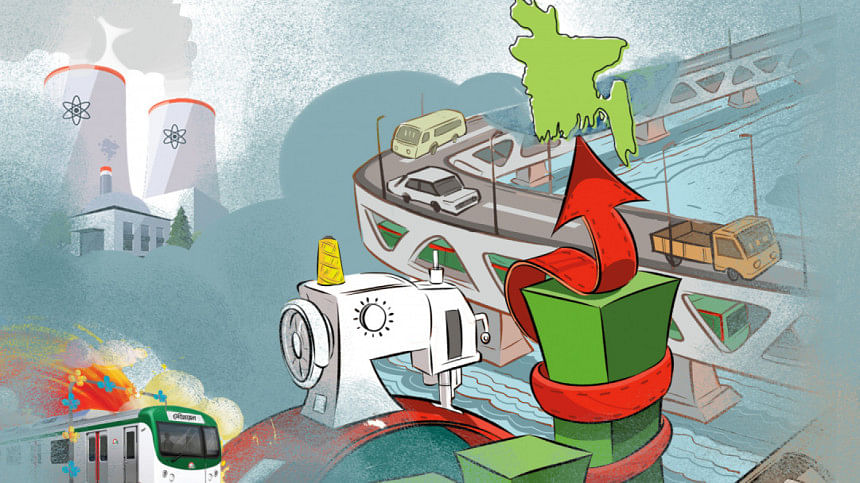
Over the past 16 years of the Awami League-led government, many ministers and policymakers have consistently praised Bangladesh's development trajectory—often comparing the country to Singapore, Asia's renowned business hub. For instance, in February 2020, then Finance Minister AHM Mustafa Kamal claimed that Bangladesh would surpass Singapore and Malaysia economically by 2024.
As a business journalist, I heard this comparison so often at government events that it became somewhat monotonous. Ironically, Kamal is no longer in the country, and a new political regime is in place. Under the interim government led by Nobel Laureate Dr Muhammad Yunus, similar comparisons with Singapore have resurfaced.
Most recently, the Bangladesh Investment Development Authority (BIDA) Chairman Ashik Chowdhury stated at an international investment conference that Bangladesh would become a regional manufacturing hub and transform into "a country like Singapore" by 2035.
Such remarks, however, often feel detached from reality.
As of 2024, Singapore's GDP per capita stood at around $85,000, compared to Bangladesh's $2,700. But beyond the numbers, Singapore is far ahead in terms of economic complexity, governance, innovation, and global competitiveness. The legacy of one of its former prime ministers, Lee Kuan Yew's leadership has made the city-state a beacon of human capital development, infrastructural excellence, and business-friendly governance. By contrast, Bangladesh continues to face chronic challenges—bureaucratic red tape, underdeveloped infrastructure, frequent traffic congestion, and an unpredictable regulatory environment that deters foreign investors.
Despite the overused comparisons, I must admit that they sparked a personal dream in me to one day see Singapore—the very symbol of efficiency and development our leaders often cite. That dream came true in the last week of June when I was selected for the 2025 International Trade Journalism Fellowship in Singapore, jointly organised by the National Press Foundation (USA) and the Hinrich Foundation (Singapore). I spent a week in the city and returned with unforgettable impressions—and a sobering perspective on where we actually stand.
Let me share some personal observations from that journey.
My experience began at Hazrat Shahjalal International Airport. Carrying a laptop in my luggage, I was stopped and asked to open my suitcase after scanning. I politely requested to avoid opening it, as it was tightly packed, but the officials insisted. After a pointless search, they let me go. The ordeal did not end there. Despite having a valid passport and a Singapore visa, I was held at immigration simply because I'm a journalist. They claimed to need "higher authority" permission. Although eventually cleared, I felt harassed and embarrassed. This experience raised a troubling question: how can a country with such a chaotic system aspire to become "the next Singapore"?
In sharp contrast, after a short three-and-a-half-hour flight, I arrived at Changi Airport—one of Asia's largest transportation hubs. My first impression? Breathtaking. Immigration took no more than three minutes—fully automated, no human interaction required. We spent nearly three hours simply exploring the airport's beauty and organisation. The comparison with our own airport was painful. I kept thinking: why would any serious investor choose to come to Bangladesh?
In Singapore, the roads are wide, traffic is smooth, and everything follows order. Pedestrians have designated crossings. Vehicles obey traffic signals without needing police intervention.
I did not see any traffic police on the roads—because everything runs on automation. Public cleanliness is maintained meticulously. People do not litter. Smokers use designated zones. Road safety is taken seriously—no illegal vehicles like battery-run rickshaws clogging the streets. One of the most impressive aspects was digital connectivity. I did not even need to buy a SIM card—public Wi-Fi was everywhere. I stayed connected via WhatsApp during my stay. The metro rail service throughout the city was just mind-blowing, and I visited most areas in Singapore using the metro rail with my contactless Mastercard. Above all, the sense of safety and order was reassuring. Surveillance is tight, and laws are strictly enforced—preventing illegal activities and ensuring peace in public spaces.
Having reported on business and economic issues for over a decade, I have witnessed how the Bangladeshi system often stifles enterprise through red tape, corruption, and inefficiency. It pains me to say this, but if we continue along our current path, it's not just that we won't become Singapore by 2035—we may not reach that level even by 2090.
Our policymakers must come down from the clouds and engage with reality. Mere optimism will not build an investment-friendly environment. We need serious, systemic reform.
Unfortunately, much of our development narrative is undermined by corruption, nepotism, lack of law enforcement, and policy inconsistency. Many of our so-called business elites are more focused on laundering money than investing productively at home. We may have numerous rules on paper, but enforcement remains elusive.
It's time we stop invoking Singapore in speeches and start drawing lessons from it in practice. Until then, these comparisons will only deepen public cynicism and push genuine reform further out of reach.
Md Mehedi Hasan is a business journalist at The Daily Star. He can be reached at [email protected].
Views expressed in this article are the author's own.
Follow The Daily Star Opinion on Facebook for the latest opinions, commentaries and analyses by experts and professionals. To contribute your article or letter to The Daily Star Opinion, see our guidelines for submission.

 For all latest news, follow The Daily Star's Google News channel.
For all latest news, follow The Daily Star's Google News channel. 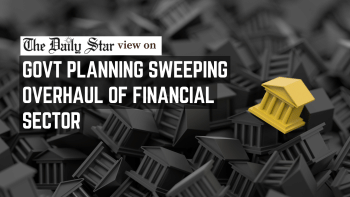
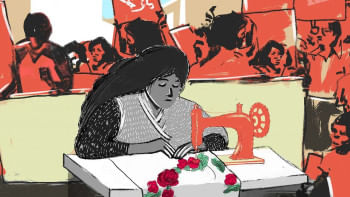



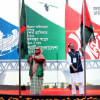
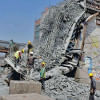
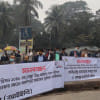



Comments